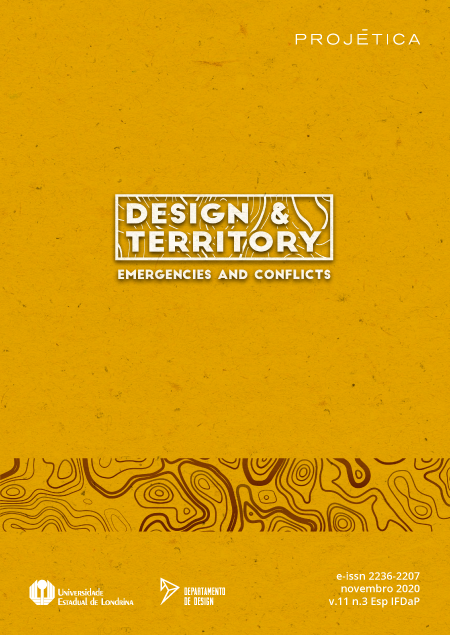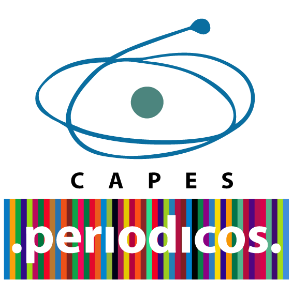Systemic models as optimization tool for territory design: Case study
DOI:
https://doi.org/10.5433/2236-2207.2020v11n3esp.p45Palabras clave:
Territory Design Local Development, Systemic Methodologies, Knowledge Management, ModelsResumen
The objective of this research is the optimized design of the territory with respect to the sustainability of systems belonging to the “new rurality”, based on action research, through the use of systemic models, which intend to carry out a design of the territory, according to the use of the new technologies and with the consideration of the socioeconomic and technical aspects of local development. For this, two cases belonging to the Colombian territory have been studied, in matters related to emerging systems of the territory. The use of systemic models has enabled the approach and simulation of the models, which represent the territory and therefore of decision-making, which allow the optimization of available resources in units considered as sustainability modules. The initial results suggest the extraction of knowledge necessary for systemic implementation. The results obtained allow the achievement of objectives and their final representationDescargas
Citas
BLACK ROCK SOLAR. Black rock solar educational field trip at Pyramid Lake Museum and Visitor Center. 2012. Available at https://www.flickr.com/ photos/39145569@N07/8553361852. Access in: 11 Jul. 2019.
BMDESIGN studios. Concave roof system collects rainwater. 2019. Available at: https://www.archdaily.com/802377/this-concave-roof-system-collectsrainwater-in-arid-climates. Access in: 10 Jul. 2019.
GEOTECTURA. Dew water collection system. 2019. Available at: https:// neofronteras.com/?p=892. Access in: 10 Jul. 2019.
LAWSON, Bryan R. How designers think: the design process demystified. 4th ed. Burlington, MA: Elsevier/Architectural, 2006.
HERNÁNDEZ, Johan Alexis O. Algo que aprender de los U´Wa. 2017. Available at: http://evolutionline.com.co/evol/index.php/2017/10/19/algo-queaprender-de-los-uwa/. Access in: 11 Jul. 2019.
HERNANDIS, Bernabé; CABELLO, Marcela. Creatividad, innovación y desarrollo de nuevos productos. Valencia: Generalitat Valenciana, 2013.
HERNANDIS-ORTUÑO, Bernabé; AGUSTÍN-FONFRÍA, Miguel Ángel; ESNALANGULO, Iñaki. Modelo sistémico para la gestión de empresas. Valencia: Red Internacional de Investigación en Diseño Sistémico, 2017.
MARTÍNEZ DE LEJARZA Y ESPARDUCER, Ignacio; HERNANDIS-ORTUÑO, Bernabé; LAHIGUERA MARCO, Carmen. Representación reticular de los objetivos de un sistema. In: ENCUENTRO EUROPEO DE SISTEMAS, 3., 1994, Valencia. Analles [...]. Valencia: Ajuntament de València, 1994. CD-ROM.
MOMOKEY. Modern agriculture. 2013. Available at: https://www.istockphoto. com/es/foto/moderna-de-agricultura-gm163123465-23291533. Access in: 10 Jul. 2019.
SCHÖN, Donald A. The reflective practitioner. New York: Basic Books, 1983.
ONE MAN’S perspectives. México 2005, 346. 2013. Available at: https://www. flickr.com/photos/24502144@N04/2357766311. Access in: 10 Jul. 2019.
ORTIZ, Marienella. La hidroponía crecerá de la mano de la exportación. 2017. Available at: http://www.redagricola.com/pe/la-hidroponia-crecera-lamano-la-exportacion/. Access in: 11 Jul. 2019.
Descargas
Publicado
Cómo citar
Número
Sección
Licencia
Projética está licenciada sob a Creative Commons Attribution CC-BY 4.0 International. Os autores detém os direitos autorais e concedem à revista o direito de exclusividade de primeira publicação.
Os autores dos trabalhos aprovados autorizam Projética a, após a publicação, ceder seu conteúdo para reprodução em indexadores de conteúdo, bibliotecas virtuais e similares.
Os autores assumem que os textos submetidos à publicação são de sua criação original, responsabilizando-se inteiramente por seu conteúdo em caso de eventual impugnação por parte de terceiros. As opiniões emitidas pelos autores dos artigos são de sua exclusiva responsabilidade.
A revista se reserva o direito de efetuar, nos originais, alterações de ordem normativa, ortográfica e gramatical, com vistas a manter o padrão culto da língua e a credibilidade do veículo. Respeitará, no entanto, o estilo de escrever dos autores. Alterações, correções ou sugestões de ordem conceitual serão encaminhadas aos autores, quando necessário. Nesses casos, os artigos, depois de adequados, deverão ser submetidos a nova apreciação. As provas finais não serão encaminhadas aos autores.













